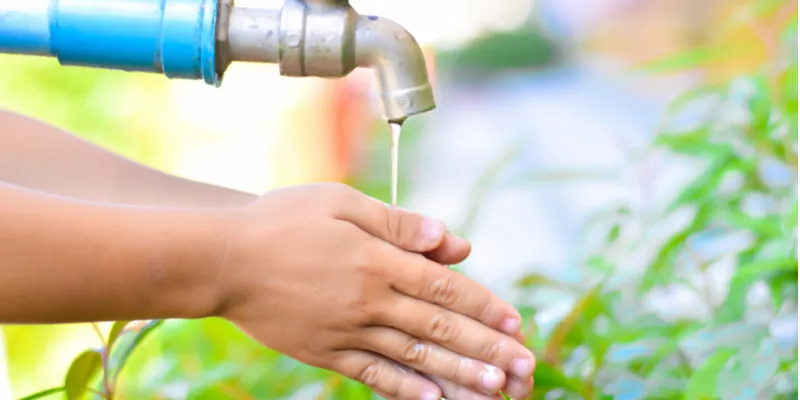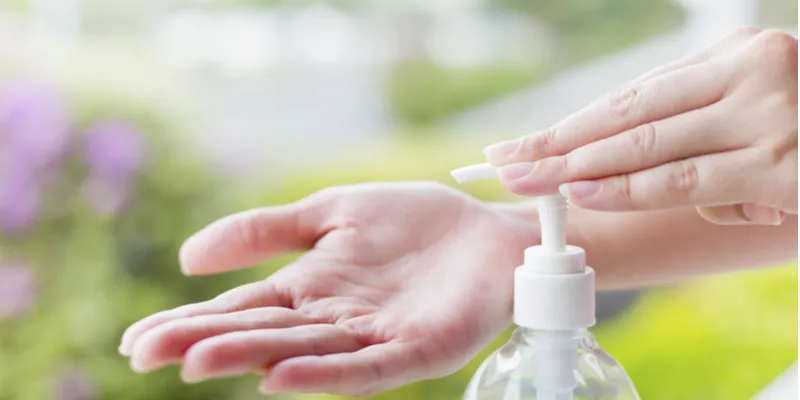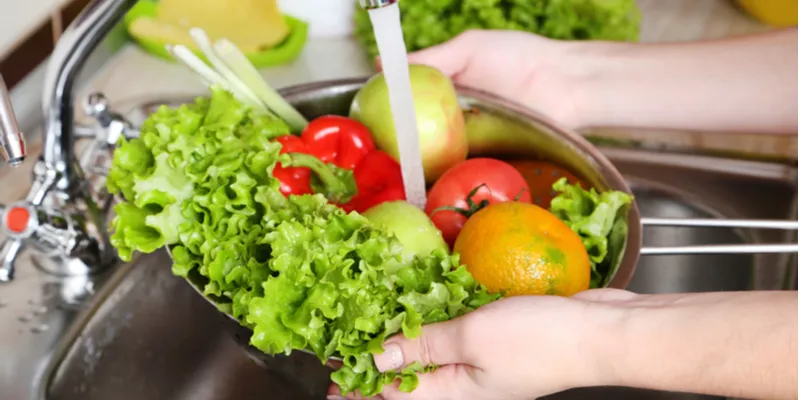It's in your hands: On World Hand Hygiene Day Dr Vishal Sehgal offers guidelines on clean living
World Hand Hygiene Day falls on May 5 to mobilise people towards staying clean. Dr Vishal Sehgal, medical director, Portea Medical tells us the importance of hygiene amid COVID-19
A pair of clean hands is a good beginning when it comes to personal hygiene, but during the times of the coronavirus, it is important to take cleanliness to the next level. The only way to beat the disease, say health workers, is personal hygiene.
Celebrated every year on 5 May, World Hand Hygiene Day mobilises people around the world to increase adherence to hand hygiene in health care facilities, thus protecting health care workers and patients from infections.
This year, due to the pandemic and subsequent lockdown of countries globally, the importance of hygiene has been reiterated to people across the world on a day-to-day basis. As we commemorate World Hand Hygiene Day this year, let us remember once again that clean hands and high levels of hygiene can save lives and keep the deadly coronavirus at bay.
Dr Vishal Sehgal is the Medical Director, Portea Medical, one of India’s leading consumer healthcare providers and has worked extensively with hospitals, corporates, and healthcare start-ups alike. In the past, Dr Sehgal has also headed the Medical and Non-Medical Operations and the Emergency and Trauma Services at Artemis Hospital Gurgaon.

Dr Vishal Sehgal
During the course of his career, he has been involved in some highly complex cases and management of mass casualties, polytrauma, cardiac and non-cardiac emergencies. He is also a specialist in medico-legal matters.
In an interaction with Dr Sehgal, he tells us about the importance of personal cleanliness and how hygiene-first will be one of the top policies in the future…
Edited excerpts from the interview….
Why is hand and general hygiene so important and why has its importance been missed till such a deadly virus hit?
Globally, lack of hand hygiene causes millions of people to suffer from diseases such as diarrhea, pneumonia and, now terrible infections such as the recent COVID-19.
It is not that there was no awareness about the importance of hand hygiene. The WHO, UNICEF and even the Government of India have been running various initiatives and campaigns to emphasise personal hygiene.
However, the rapid surge of cases and deaths caused by the pandemic has created a lot of panic and made people aware that proper hand hygiene can be more effective than medication or treatment to combat COVID-19.
What is the best way to wash your hands?

Hand hygiene can combat COVID-19
WHO recommends washing the hands thoroughly with a soap and clean water for a minimum of 20 seconds.
The front and back of the hands should be cleaned properly and attention must be paid to the space between the fingers or near fingernails. In areas facing water shortage or in medical facilities, usage of alcohol-based sanitiser to rub hands is also recommended.
How else can you ensure personal hygiene in every way?
Apart from hand hygiene, one must pay utmost attention to other aspects such as regular bathing. Using a disinfectant to wash clothes along with a detergent and keeping your home sanitised are some other steps that should be taken.
Is a sanitiser as effective as soap to stay clean?

A santiser should only be used if soap and water are not available
A sanitiser can be effective in killing disease causing microbes. However, it is not a replacement for cleaning hands with soap and water and should only be used as an alternative wherever needed.
Where are the regions where dirt can reside and how can we prevent this?
Dirt usually settles in joints, feet, spaces between fingers and toes and hair. We can prevent this by frequently washing our hands and legs and taking daily baths/wearing fresh clothes every day. Clothes should be changed on a daily basis especially in warmer and humid climates. This helps in avoiding any germ build up caused by sweat and humidity.
How important is nail hygiene and what is the best way to keep our nails clean?
Nail hygiene is of utmost importance. The area under the nails provides shelter to germs and can cause dirt as well as dead tissue to accumulate. We should keep our nails cut short and regularly clean the area around the nails using a nail file.
In your experience how many diseases are caused due to unhygienic ways?
There are several diseases caused directly and indirectly by unhygienic ways of living. Diarrhea, pneumonia, malaria, dengue etc., are all diseases spread by unhygienic conditions. Mosquitoes breed in stagnant water and areas of the house where dirt accumulates. Hence, hygiene doesn’t prevent only pandemic outbreaks but, also many of the seasonal diseases.
What about the feet and its hygiene? Can you explain why this is also important to stay safe?
Foot hygiene is critical. A lot of dirt usually accumulates in our soles, space between the toes, toenails and heel or ankle area. This can cause microbes to grow which then spread to wherever we walk -- from the feet to the floors, furniture, bed and eventually the other parts of our body. Dirty feet can also cause skin problems and infections.
Do we need to wear gloves all the time post the lockdown to stay safe?
We do not need to wear gloves all the time even during the lockdown. Gloves are to be used when there is a likelihood of coming into contact with contaminated surfaces or while visiting high risk places like a hospital. Unless you are a healthcare professional and at your workplace, you should avoid wearing gloves all the time.
In fact, if we wear gloves throughout the day, we might just touch contaminated surfaces and then other sanitised objects or healthy people, transferring the infection in the process.
What is the best way to cook safely and hygienically?

Vegetables should be kept submerged in clean water for some time before cooking
All food items such as vegetables, animal products etc., should be thoroughly washed with clean water before cooking.
Vegetables should be ideally kept submerged in clean water for about 15 minutes or more. Hygiene of the utensils used in cooking, cooktop, kitchen counters and any other surfaces, tools should be ensured.
What kind of soap would you recommend and how often is washing needed?
Any bathing or hand wash soap or liquid is good for washing hands. The frequency depends on the activities performed by you. For instance, one should wash hands every time you visit the washroom, after returning home from outdoors, before and after meeting a sick person, after touching common use surfaces such as hand rails or poles in a public place, and before eating, serving or cooking food.
Since frequent washing can ruin the skin what would you suggest to protect the hands?
Usage of moisturisers and creams can help overcome any such issues. You should apply a good hand cream at least once a day and give preference to using soap and water wherever possible.
In the future what do you see happening hygiene wise in offices and homes?
Covid-19 is a pandemic and it will certainly be brought under control with time. However, it has taught us all a very strong lesson in personal hygiene and sanitation and the effects will be visible in the future too. There will be a much higher emphasis on sanitation in future offices and homes.
Social distancing, frequent sanitisation, usage of hand sanitisers and touch-less instruments will come into play. Biometric machines at workplaces are likely to be replaced. The new normal is going to be primarily about hygiene-first policies.







